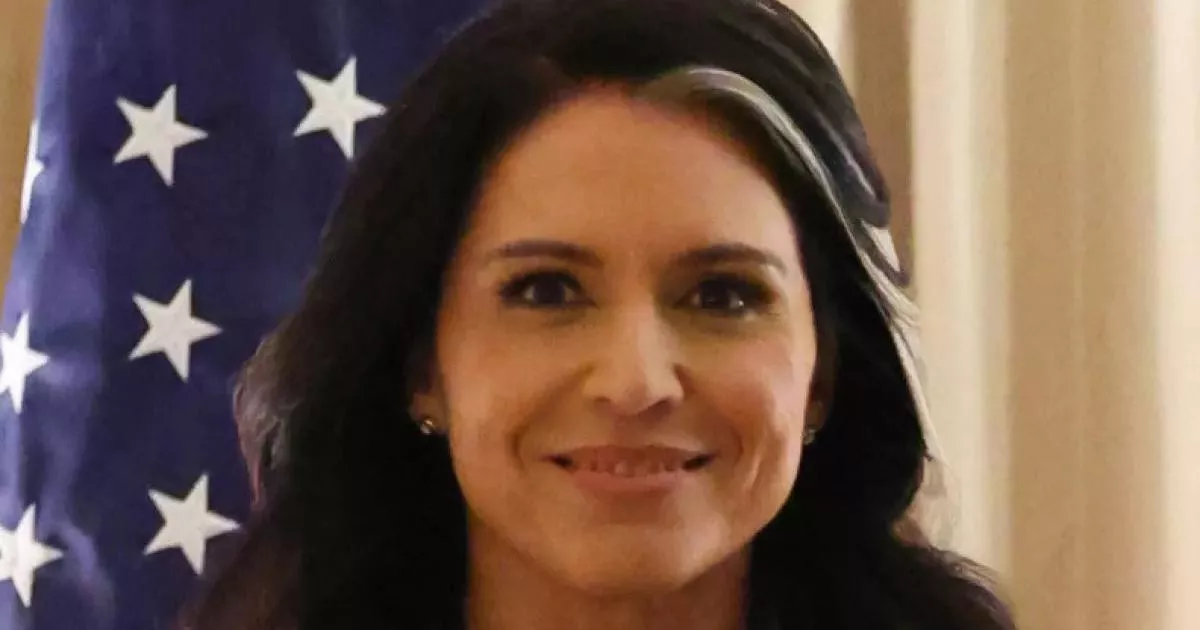How education and upbringing influenced the life of Tulsi Gabbard. A timeline of key moments.
Tulsi Gabbard is an American politician and military officer, currently serving as the Director of National Intelligence since 2025. A Lieutenant Colonel in the U.S. Army Reserve since 2021, she formerly represented Hawaii's 2nd congressional district (2013-2021). Gabbard's political affiliations have shifted over time, beginning as a Democrat, becoming an Independent in 2022, and later joining the Republican Party in 2024. She was also the youngest state legislator in Hawaii from 2002 to 2004.
April 12, 1981: Tulsi Gabbard's Birth
On April 12, 1981, Tulsi Gabbard was born in Leloaloa, American Samoa.
1983: Family moved back to Hawaii
In 1983, when Tulsi was two years old, her family moved back to Hawaii.
1998: Support for Amendment on Marriage
In 1998, when she was 17 years old, Tulsi Gabbard supported her father's successful campaign to amend the Constitution of Hawaii to give lawmakers the power to "reserve marriage to opposite-sex couples".
2001: Father Got Active in Local Politics
Around 2001, Tulsi Gabbard's father got active in local politics and was elected to the Honolulu City Council.
2002: Ran for Hawaii State Legislature
In 2002, Tulsi Gabbard dropped out of Leeward Community College to run for the Hawaii State Legislature, becoming the youngest woman ever elected as a U.S. state representative.
2002: Won Election for Hawaii House of Representatives
In 2002, Tulsi Gabbard won the election for the 42nd district of the Hawaii House of Representatives, becoming the youngest legislator ever elected in Hawaii's history.
April 2003: Enlisted in the Hawaii Army National Guard
In April 2003, while serving in the Hawaii State Legislature, Tulsi Gabbard enlisted in the Hawaii Army National Guard.
2003: Joined Hawaii Army National Guard
In 2003, Tulsi Gabbard joined the Hawaii Army National Guard.
2004: Deployed to Iraq
In 2004, Tulsi Gabbard was deployed to Iraq, where she served as a specialist with a medical unit.
2005: Service in Iraq
From 2004 to 2005, Tulsi Gabbard served in Iraq as a specialist with a medical unit and received the Combat Medical Badge.
2005: Completed Tour in Iraq
In 2005, Tulsi Gabbard completed her tour in Iraq at Logistical Support Area Anaconda.
2006: Father became a Hawaii State Senator
In 2006, Tulsi Gabbard's father became a Hawaii State Senator.
March 2007: Graduated from Accelerated Officer Candidate School
In March 2007, Tulsi Gabbard graduated from the Accelerated Officer Candidate School at the Alabama Military Academy at the top of her class.
2007: Completed Officer Training Program
In 2007, Tulsi Gabbard completed the officer training program at the Alabama Military Academy.
2008: Stationed in Kuwait
From 2008 to 2009, Tulsi Gabbard was stationed in Kuwait as an Army Military Police platoon leader.
2009: Graduated from Hawaii Pacific University
In 2009, Tulsi Gabbard graduated from Hawaii Pacific University with a Bachelor of Science degree in business administration with a concentration in international business.
September 2010: Finished first in Honolulu City Council Primary
In September 2010, Tulsi Gabbard finished first in the 10-candidate nonpartisan open primary for a seat on the Honolulu City Council.
May 2011: Declared candidacy for U.S. House seat
In May 2011, Tulsi Gabbard declared her candidacy for the open U.S. House seat for Hawaii's 2nd congressional district.
August 16, 2012: Resigned from Honolulu City Council
On August 16, 2012, Tulsi Gabbard resigned from the Honolulu City Council to focus on her congressional campaign.
December 2012: Applied for appointment to the U.S. Senate seat
In December 2012, Tulsi Gabbard applied for appointment to the U.S. Senate seat vacated by the death of Daniel Inouye, but was not among the candidates forwarded to the governor.
2012: Apology for Anti-Gay Advocacy
In 2012, Tulsi Gabbard apologized for her "anti-gay advocacy" and said she would "fight for the repeal" of the Defense of Marriage Act (DOMA).
2012: Spoke at Democratic National Convention and Elected to Congress
In 2012, Tulsi Gabbard spoke at the Democratic National Convention and was subsequently elected to Congress, becoming the first voting Samoan American and the first Hindu member of Congress.
2012: Elected to U.S. House of Representatives
In 2012, Tulsi Gabbard was elected to the U.S. House of Representatives from Hawaii's 2nd congressional district, succeeding Mazie Hirono. She became the first Samoan American and Hindu American member of U.S. Congress.
June 2013: Cosponsor of Legislation to Repeal DOMA
In June 2013, Tulsi Gabbard was an initial cosponsor of the legislation to repeal DOMA.
2013: Support for Easier Path to Citizenship
Between 2013 and 2021, Tulsi Gabbard expressed support for an easier path to citizenship for immigrants without legal status, increasing skilled immigration, and granting work visas to immigrants.
2013: Criticism of President Obama on Islamic extremism
In 2013, Tulsi Gabbard began appearing on Fox News and criticized President Obama for his refusal to refer to ISIS beliefs and terrorism as "Islamic extremism" or "radical Islam".
2013: Signing of Amicus Brief Supporting Gay Marriage
In 2013, Tulsi Gabbard signed an amicus brief supporting gay marriage, marking a change from her earlier stance.
2014: Reelected to Congress
In 2014, Tulsi Gabbard was reelected to Congress, defeating Kawika Crowley again.
2015: Criticism of Obama administration on Islamic extremism
In 2015, Tulsi Gabbard criticized the Obama administration for "refusing" to acknowledge Islamic extremists as the "real enemy" of the United States.
2015: Meeting with Egyptian dictator 'Abd al-Fattah al-Sisi
In 2015, Tulsi Gabbard met with Egyptian dictator 'Abd al-Fattah al-Sisi in Cairo and commended him for his "great courage and leadership" in his regime's war against "Islamist ideology", which drew widespread criticism.
2015: Support for Increased Border Security
In 2015, Tulsi Gabbard, along with 47 other Democrats, expressed support for increased border security and voted with Republicans for vetting of Iraqi and Syrian refugees.
2015: Became a Major
In 2015, while serving in Congress, Tulsi Gabbard became a major with the Hawaii Army National Guard.
2016: Views on Islamist militancy and US military intervention
In 2016, Tulsi Gabbard expressed a strong stance against Islamist militancy, supporting tough actions against Al Qaeda and ISIS. She described herself as a hawk on terrorism but a dove on counterproductive regime change wars, advocating for reduced US military interventionism.
2016: Resigned from DNC to endorse Bernie Sanders
In 2016, Tulsi Gabbard resigned from the Democratic National Committee (DNC) to endorse Bernie Sanders for the 2016 Democratic presidential nomination.
2016: Support for Standing Rock Sioux Tribe
In 2016, Tulsi Gabbard supported the Standing Rock Sioux Tribe against the construction of the Dakota Access Pipeline, co-signing a letter requesting the Obama administration to address the tribal concerns about the project.
2016: Vote Against GMO-Labeling Bill
In 2016, Tulsi Gabbard voted against a GMO-labeling bill, stating it was too weak.
April 2017: Response to the Khan Shaykhun chemical attack
In April 2017, following the Khan Shaykhun chemical attack, Tulsi Gabbard expressed skepticism about Assad's responsibility without an independent investigation, drawing parallels to the Iraq War and warning against repeating a "counterproductive regime war" without clear evidence.
2017: Views on Syrian rebels and terrorist groups
After a 2017 visit to Syria, Tulsi Gabbard expressed her view that there is no difference between "moderate" rebels and al-Qaeda or ISIS, stating they are all the same.
2017: Opposition to Islamist political movements
By 2017, Tulsi Gabbard took strong stances in opposition to Islamist political movements and organizations in the Middle East during her time in U.S. Congress.
2017: Response to Chemical Warfare Allegations
In 2017, Gabbard said her initial skepticism was specifically around incidents, which were used as an excuse to launch a U.S. military attack in Syria.
2017: Introduction of Stop Arming Terrorists Act
In 2017, Tulsi Gabbard introduced the Stop Arming Terrorists Act.
2018: Characterization of U.S. actions in Syria
In 2018, Tulsi Gabbard characterized the U.S. as waging a regime change war in Syria since 2011.
February 2019: Reports on Gabbard's Skepticism
In February 2019, media outlets reported that Gabbard had called for evidence to be presented to Congress regarding her skepticism of the Assad regime's involvement in the gas attack.
February 2019: Statements on Assad and U.S. foreign policy
In a February 2019 interview with MSNBC, Tulsi Gabbard stated that "Assad is not the enemy of the United States because Syria does not pose a direct threat to the United States." In a subsequent CNN interview, she acknowledged Assad as a brutal dictator, but argued against U.S. regime-change wars.
March 10, 2019: Clarification on skepticism regarding Assad's use of chemical warfare
On March 10, 2019, Tulsi Gabbard clarified that she believed chemical weapons had been used in Syria by both the Syrian government and terrorist groups, and that her initial skepticism was about specific incidents in 2017 used to justify a U.S. military attack in Syria.
July 2019: Visit to Puerto Rico and protests
In July 2019, Tulsi Gabbard was the only 2020 presidential candidate to visit Puerto Rico and join protests urging Governor Ricardo Rosselló to resign.
August 2019: Comparison of Assad to other dictators
In August 2019, Tulsi Gabbard described Assad as "a brutal dictator, just like Saddam Hussein and Gadhafi," emphasizing her opposition to wasteful regime-change wars due to their high human cost.
August 2019: Publication of "Reports on Chemical Attacks in Syria"
In August 2019, the Tulsi 2020 presidential campaign published "Reports on Chemical Attacks in Syria", a compilation of analyses and reports on chemical attacks. The document expressed skepticism about the Khan Shaykhun and Douma attacks and concerns about reliance on unverified sources for military actions.
December 2019: Vote on Trump Impeachment
In December 2019, Tulsi Gabbard voted "present" during the House of Representatives vote to impeach President Trump and introduced H. Res. 766, which would censure Trump for his foreign policy decisions.
December 20, 2019: Stop Arming Terrorists Act becomes law
On December 20, 2019, the Stop Arming Terrorists Act that Tulsi Gabbard introduced in 2017 became law, prohibiting the Department of Defense from knowingly providing support to Al Qaeda or other terrorist groups.
2019: Apology for Past Anti-Gay Views
After launching her presidential campaign in 2019, Tulsi Gabbard apologized for her past anti-gay views and said that her views had been changed by her experience in the military.
2019: Views on Putin as a U.S. adversary
In 2019, Tulsi Gabbard affirmed on MSNBC's Morning Joe that she views Putin as a U.S. adversary.
2019: Support for Moratorium on Factory Farms
In 2019, Tulsi Gabbard stated that she supports a moratorium on the construction and expansion of concentrated animal feeding operations, sometimes referred to as factory farms.
2019: Amendment to NDAA on Runit Dome
In 2019, Tulsi Gabbard successfully passed an amendment to the 2019 National Defense Authorization Act that would require the Department of Energy to reexamine the safety of the Runit Dome, a leaking Cold War era nuclear waste site in the Marshall Islands.
January 2020: Call for Drug Legalization
In January 2020, Tulsi Gabbard called for legalizing and regulating all drugs, citing Portugal's model for drug decriminalization.
March 2020: Dropped out of presidential campaign and endorsed Joe Biden
In March 2020, Tulsi Gabbard dropped out of her 2020 presidential campaign and endorsed Joe Biden.
June 2020: Introduction of Amendment to NDAA
In June 2020, Tulsi Gabbard introduced an amendment to the House version of the 2021 NDAA to allow members of Armed Services to use products containing CBD and other hemp derivatives.
July 2020: Meeting with the family of Vanessa Guillén
In July 2020, Tulsi Gabbard met with the family of Vanessa Guillén, a U.S. Army soldier who was found murdered. Gabbard called for reforms to address military sexual harassment, stating she stood "for Vanessa" and "for her family".
August 2020: Advocating for Jennifer Smith
In August 2020, Tulsi Gabbard advocated for Jennifer Smith, a Hawaii Department of Health epidemiologist who reported issues with the state's COVID-19 contact tracing program.
November 2020: Jennifer Smith's reinstatement
In November 2020, Jennifer Smith was reinstated in her position, after Tulsi Gabbard's advocacy.
2020: Introduction of Protect Women's Sports Act
In 2020, Tulsi Gabbard and Republican U.S. representative Markwayne Mullin introduced a bill titled the "Protect Women's Sports Act" that would seek to define Title IX protections on the basis of an individual's biological sex.
2020: Transferred to U.S. Army Reserve
In 2020, Tulsi Gabbard transferred to the U.S. Army Reserve.
2020: Criticism of Baghdad International Airport airstrike
In 2020, Tulsi Gabbard was critical of the U.S. military's Baghdad International Airport airstrike, which killed Iranian General Qasem Soleimani, calling it an act of war without congressional authorization.
2020: Shift in Political Positions
In 2020, Tulsi Gabbard's political positions, previously liberal on domestic policy, began to align more with Republican positions on social issues. In 2020 she also introduced a bill to ban trans women from female sports.
2020: Tulsi 2020 campaign publishes report on chemical attacks in Syria
In 2020, the Tulsi 2020 presidential campaign published "Reports on Chemical Attacks in Syria", compiling analyses suggesting that both sides used chemical weapons, while expressing skepticism about the Khan Shaykhun and Douma attacks, but Gabbard "remained skeptical" of the Khan Shaykhun chemical attack, and the Douma chemical attack.
November 2021: Celebration of Glenn Youngkin's victory in Virginia
In November 2021, Tulsi Gabbard celebrated the victory of Republican candidate Glenn Youngkin in the Virginia Gubernatorial election over Democratic candidate Terry McAuliffe.
2021: Departure from Congress
After her departure from Congress in 2021, Gabbard took more conservative positions on issues such as transgender rights, border security, and foreign policy.
2021: Support for Easier Path to Citizenship
Between 2013 and 2021, Tulsi Gabbard expressed support for an easier path to citizenship for immigrants without legal status, increasing skilled immigration, and granting work visas to immigrants.
2021: Promoted to Lieutenant Colonel
In 2021, Tulsi Gabbard was promoted to the rank of lieutenant colonel in the U.S. Army Reserve.
2021: NDAA bill
In 2021, an amendment was introduced to the House version of the 2021 NDAA to allow members of Armed Services to use products containing CBD and other hemp derivatives.
February 11, 2022: Suggestion to prevent war with Russia
On February 11, 2022, during the build-up to Russia's invasion of Ukraine, Tulsi Gabbard suggested President Biden could prevent war by guaranteeing Ukraine would not join NATO, blaming "warmongers" and suggesting the U.S. might want Russia to invade.
April 2022: Support for Florida's Parental Rights Bill
In April 2022, Tulsi Gabbard expressed support for Florida's Parental Rights Bill on Hannity, stating that it did not go far enough in that it only covered grades K through 3, while Gabbard believed it should have continued all the way through twelfth grade.
October 11, 2022: Announcement of departure from the Democratic Party
On October 11, 2022, Tulsi Gabbard announced on Twitter that she was leaving the Democratic Party, accusing its leadership of "cowardly wokeness, anti-white racism, [being] hostile to people of faith and spirituality, and dragging us closer to nuclear war".
2022: Openness to Border Wall Proposal
By 2022, Tulsi Gabbard said she would be open to a proposal for a border wall if experts say it is warranted.
2022: Endorsement of Florida Parental Rights in Education Act
In 2022, Tulsi Gabbard endorsed the Florida Parental Rights in Education Act, which restricts discussions on sexual orientation and gender identity in Florida public schools. She stated that the bill prevents the indoctrination of "woke sexual values" in schools and suggested it should apply to all grades.
2022: Spoke at CPAC and left the Democratic Party
In 2022, Tulsi Gabbard spoke at the conservative CPAC conference and left the Democratic Party.
2022: Speaker at CPAC
In 2022, Tulsi Gabbard was a featured speaker at the Conservative Political Action Conference (CPAC).
November 2023: Attendance at the March for Israel
In November 2023, Tulsi Gabbard attended the March for Israel at the National Mall in Washington, D.C., showing her support for Israel.
November 2024: Reports on Gabbard's Skepticism
In November 2024, media outlets reported that Gabbard had called for evidence to be presented to Congress regarding her skepticism of the Assad regime's involvement in the gas attack.
2024: Endorsed Donald Trump and joined Republican Party
In 2024, Tulsi Gabbard endorsed Donald Trump for the presidential election and later that year joined the Republican Party.
2024: Gabbard discusses IVF attempts
In 2024, while on Meghan McCain's podcast, Tulsi Gabbard mentioned that she and her husband, Abraham Williams, had tried to start a family and had undergone several in-vitro fertilization (IVF) procedures without success.
February 2025: Confirmed as Director of National Intelligence
In February 2025, Tulsi Gabbard was confirmed by the Senate as the Director of National Intelligence (DNI).
March 2025: Testimony on Iran's nuclear program
In March 2025, Tulsi Gabbard testified before Congress stating that the US intelligence community assessed that Iran was not building a nuclear weapon, but she raised concerns about Iran's enriched uranium stockpile.
June 2025: Clarification on Iran's nuclear weapon stance
In June 2025, Tulsi Gabbard clarified her position on Iran's nuclear weapons, agreeing with President Trump that Iran could build a nuclear weapon in weeks. She blamed the media for misrepresenting her March testimony.
June 2025: Support for Trump administration's claim of damage to Iran's nuclear sites
In June 2025, Tulsi Gabbard supported the Trump administration’s claim of significant damage to Iran's nuclear sites from US strikes, contradicting media reports of limited damage. She stated that Iran's nuclear facilities would likely take years to rebuild if they chose to do so.
Mentioned in this timeline

Donald John Trump is an American politician media personality and...

Bernie Sanders is a prominent American politician currently serving as...
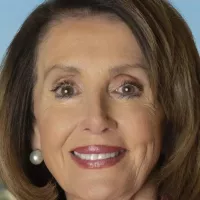
Nancy Pelosi is a prominent American politician notably serving as...

Tucker Carlson is an American right-wing political activist and commentator...
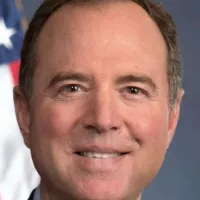
Adam Schiff is an American politician and lawyer currently serving...
Fox News Channel FNC is a conservative American news and...
Trending

2 hours ago Warriors face play-in, Curry's injury raises concerns, Kerr lowers expectations, Moody's role?
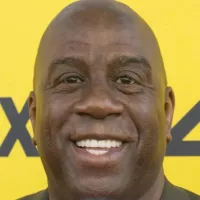
17 minutes ago Michael Jordan's NASCAR impact: Antitrust lawsuit, 23XI Racing, and historic career.
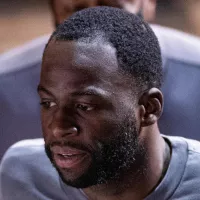
2 hours ago Stephen A. Smith criticizes Draymond Green's comments on Nico Harrison as unfair.

2 hours ago Kris Dunn Recovered From Injury, Briefly Exited Game After Elbow Contact

2 hours ago Al Horford's Role Shifts: Back to Starting Lineup, Then Bench, Mindset Revealed.
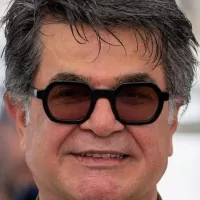
3 hours ago Jafar Panahi faces restrictions, continues filmmaking despite adversity and imprisonment in Iran.
Popular

Jesse Jackson is an American civil rights activist politician and...

Hillary Diane Rodham Clinton is a prominent American politician lawyer...

Jim Carrey is a Canadian-American actor and comedian celebrated for...

XXXTentacion born Jahseh Dwayne Ricardo Onfroy was a controversial yet...

Michael Joseph Jackson the King of Pop was a highly...

Kashyap Pramod Patel is an American lawyer who became the...
